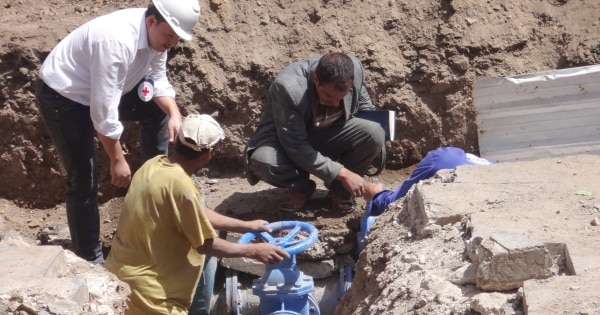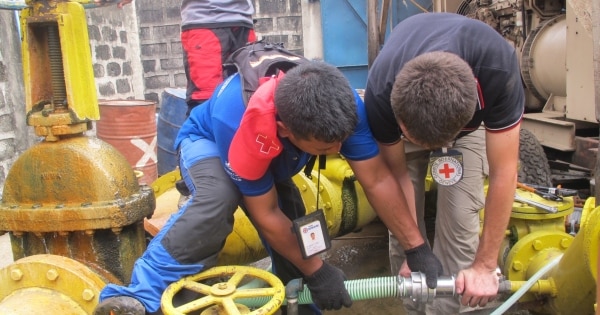< BACK TO JOBS
WHAT WE DO
ICRC water and habitat engineers are responsible for planning, designing and implementing engineering projects for victims of armed conflict. Working in a team, their tasks include conducting needs assessments, surveying water and housing needs, negotiating with local authorities and firms regarding project implementation and handling all aspects of project management.
Watch our related videos:
Water and habitat engineer - video
Water and war in towns and cities - video
Urban services during protracted conflict - video
Delivering life-saving water in the countryside - video
Responding to emergencies - video
Building hospitals and rebuilding them - video
Protecting health and dignity in prisons - video
WHAT WE LOOK FOR
We are looking for people from different academic and technical backgrounds with a range of qualifications, skills and experiences, including:
- Very good command of English. Fluency in another ICRC working language (French, Spanish, Russian or Arabic) is a strong asset
- University degree in architecture, civil or structural engineering, hydrology, hydraulics, geology or related fields
- At least three years’ professional experience in any of the above fieldsof water and habitat, including managing technical support staff
- Experience of working internationally, in particular for a humanitarian organization, is a strong asset
- Proficiency in the use of IT office tools and computer-aided design (CAD) drawing software. Knowledge of Epanet software is an asset
- Readiness to accept unaccompanied postings (i.e. no spouse, partner, children or dependents) for the first two assignments (minimum 12 months each)
- Valid driving license for manual transmission vehicles
- Commitment to the ICRC’s humanitarian mandate
You:
- are strongly motivated by humanitarian work;
- are able to work under pressure in a potentially dangerous environment;
- have excellent communication skills;
- are excellent team leader, with a high level of intercultural understanding;
- have excellent organizational skills; ability to prioritize a complex workload and to work autonomously as needed;
- have hands-on approach to project management.
WHAT WE OFFER
By joining our organization, you will have an opportunity to practise your profession in stimulating, complex and sometimes challenging environments, where your work can really make a difference.
You will work with colleagues from various fields of expertise in a cross-cutting manner to help victims of conflict and other situations of violence. You will be dealing with humanitarian situations that require experience, resourcefulness and innovation in order to achieve the best possible impact, often with limited resources.
You will work for the oldest major international humanitarian organization in the world, adding to your sense of achievement in alleviating the suffering of people and communities and giving you the chance to promote humanitarian values in these turbulent times.
You will benefit from a competitive employment package, including different possibilities for career and personal development. You will take part in an onboarding course and follow continuous training, in order to build your career within the ICRC and beyond.
STORIES FROM THE FIELD


